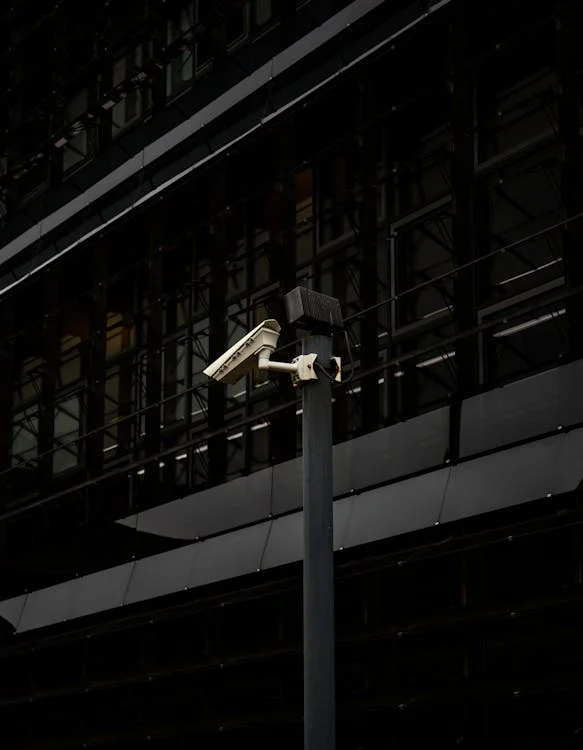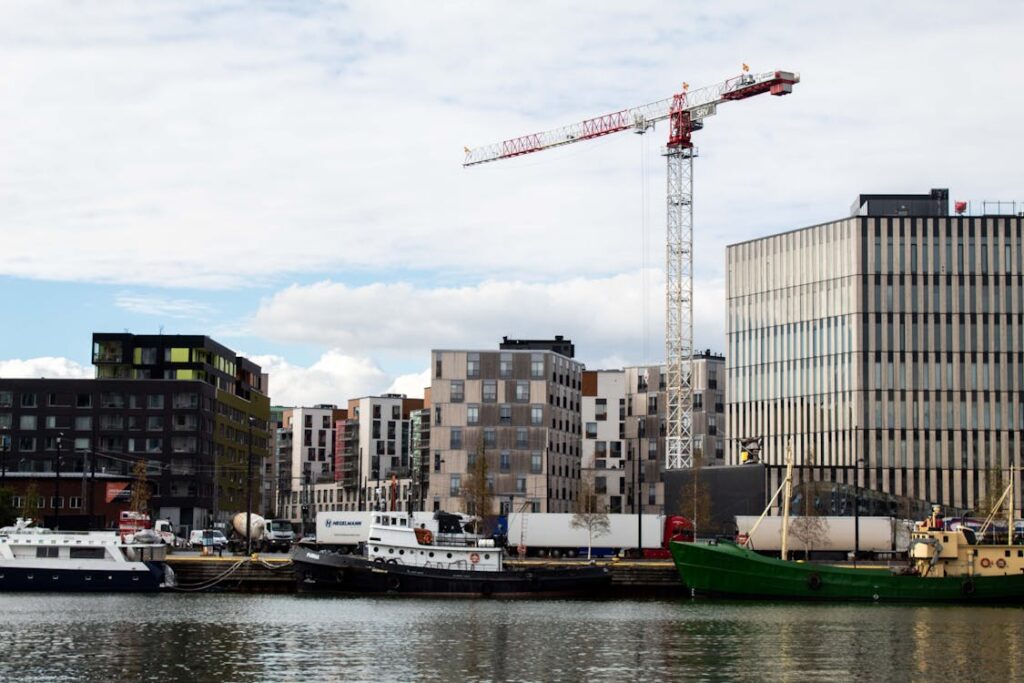Introduction:

As a business owner, safeguarding your company against risks and unforeseen events is a fundamental part of your growth strategy. One of the most effective ways to protect your business is through commercial insurance. However, it’s not enough just to purchase a generic policy. Without a proper understanding of the types of coverage, the specific risks your business faces, and how to adjust your policy over time, you could inadvertently expose yourself to serious financial liabilities.
In this article, we will explore the top five commercial insurance mistakes that many business owners make and how to avoid them to ensure that your business remains protected. Whether you’re just starting or have been in business for years, knowing how to navigate commercial insurance effectively is crucial to your business’s long-term success and safety.

1. Understanding the Importance of Commercial Insurance for Your Business’s Safety
Commercial insurance serves as a safety net for businesses, helping them recover from unexpected financial losses due to accidents, lawsuits, or natural disasters. When you overlook the importance of comprehensive commercial insurance, you expose your business to potential catastrophic costs.
Many small business owners, in particular, may underestimate the risks they face, believing that they are too small to be targeted by lawsuits or that they can recover from incidents on their own. However, this misconception can be dangerous. Businesses of all sizes are vulnerable to a wide range of risks, including property damage, employee injuries, and customer lawsuits.
The importance of commercial insurance goes beyond just protecting your physical property or assets. It extends to ensuring that your reputation, financial stability, and day-to-day operations aren’t disrupted by unforeseen events. Additionally, certain forms of commercial insurance are legally required, depending on the type of business and location, making it imperative to fully understand your needs.
By securing the right commercial insurance, you help guarantee the survival and continuity of your business in the event of a disaster, lawsuit, or other major incident. Your policy should address risks specific to your operations and should be regularly updated as your business evolves. Without it, the financial fallout from a significant event could jeopardize everything you’ve worked for.

2. Overlooking the Specific Needs of Your Industry in Commercial Insurance Plans
One of the most common mistakes businesses make when purchasing commercial insurance is opting for a one-size-fits-all policy that doesn’t account for the unique needs of their specific industry. Every industry has its own set of risks, and your commercial insurance should reflect that.
For example, a construction company needs more extensive coverage for accidents on job sites, property damage, and worker injuries. A tech startup, on the other hand, will require coverage for cyber risks, intellectual property theft, and data breaches. Failing to tailor your commercial insurance to the specific risks inherent in your industry can leave you vulnerable to situations that your general policy won’t cover.
Additionally, certain industries may have stricter insurance requirements due to the high-risk nature of their operations. For instance, healthcare providers may need commercial insurance plans that cover malpractice or liability suits, while retailers need policies to protect their physical stores and inventory.
To avoid making this mistake, it’s essential to work closely with an experienced commercial insurance broker who understands your industry and can help craft a policy that’s tailored to your specific risks. Taking this step ensures that your business has the protection it needs without paying for unnecessary coverage that doesn’t apply to your industry.

3. Ignoring the Impact of Liability Risks in Your Commercial Insurance Strategy
Liability risks are a critical component of any commercial insurance policy, and failing to account for them adequately can leave your business exposed to major financial losses. Liability can arise from many different situations, including accidents on your premises, product defects, or employee actions.
For example, a slip-and-fall accident at your place of business could lead to a costly lawsuit if a customer is injured. Or, if one of your products malfunctions and causes harm to a consumer, you could be held liable for damages. These kinds of events are not only stressful but can also drain your financial resources if you’re not properly covered with the right liability protection.
There are various forms of liability coverage available within commercial insurance, including general liability, product liability, and professional liability. Each type of liability insurance addresses specific risks your business may face. Not having sufficient coverage could result in your business having to cover legal costs, medical expenses, and settlement fees out-of-pocket.
To minimize your exposure to liability risks, it’s essential to evaluate the specific risks related to your industry and operations. Working with your insurance provider to ensure adequate coverage for all potential liabilities will give you peace of mind, knowing your business is protected in case of lawsuits or claims.

4. The Role of Commercial Insurance in Protecting Your Business Assets
Your business assets are the lifeblood of your operation. They include physical assets like buildings, machinery, and inventory, as well as intangible assets such as intellectual property and brand value. If any of these assets are damaged, destroyed, or stolen, it could seriously impact your ability to operate and generate revenue.
Commercial insurance plays a key role in protecting these valuable assets. Property insurance, for example, can cover the cost of repairing or replacing damaged equipment or structures, while business interruption insurance can help you recover lost income if you’re temporarily unable to operate due to a covered event.
Without proper protection, the loss of assets could result in major setbacks for your business. Some companies, particularly small and medium-sized businesses, make the mistake of underestimating the value of their physical and intangible assets and purchase minimal insurance coverage. This often leaves them exposed if something goes wrong.
To avoid this, take a comprehensive inventory of all your assets and ensure your commercial insurance policy includes coverage for the full value of these items. If necessary, discuss with your insurance provider about adding endorsements or additional coverage to protect your specific assets.

5. How Overlooking Future Business Growth Can Impact Your Commercial Insurance Needs
As your business grows, your insurance needs will evolve. One common mistake made by business owners is purchasing commercial insurance coverage based on the size of their company when the policy is first established and failing to adjust it as the business expands. This can lead to gaps in coverage that expose your business to significant risks.
For example, as your company hires more employees, your workers’ compensation insurance needs to be updated to account for the increased number of staff. If your business expands into new locations or adds new products or services, you may require additional coverage to address new risks.
Similarly, if your revenue increases, the value of your physical assets may rise, and your policy may need to be adjusted accordingly to ensure that you’re adequately covered. Failing to monitor these changes can result in being underinsured, which can lead to devastating financial consequences.
To avoid this mistake, schedule regular reviews of your commercial insurance policy, especially during key growth phases. Keeping your coverage aligned with the changing needs of your business will ensure that you remain adequately protected as your company expands.


Conclusion:
Securing the right commercial insurance is one of the most crucial steps you can take to protect your business from financial hardships due to unforeseen events. By avoiding these five common mistakes—underestimating the importance of comprehensive coverage, neglecting industry-specific needs, ignoring liability risks, failing to protect your assets, and overlooking your business’s future growth—you can ensure that your business remains safeguarded against a wide range of risks.
Ultimately, the right commercial insurance policy will provide you with peace of mind, knowing that you are prepared for whatever challenges come your way. Don’t wait until it’s too late to reassess your coverage. Partner with a trusted insurance professional, review your policy regularly, and ensure that your business is as protected as it can be. Your business deserves nothing less.


